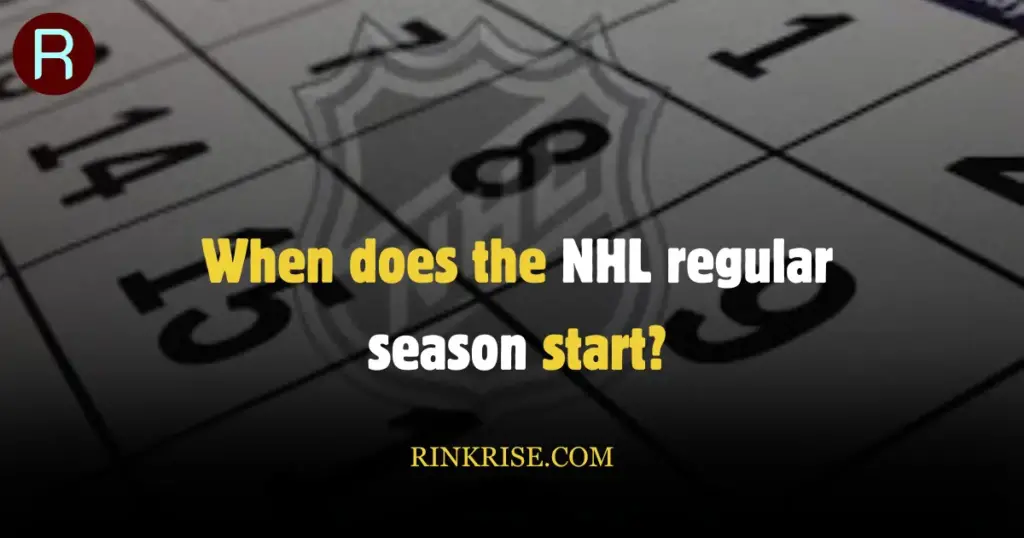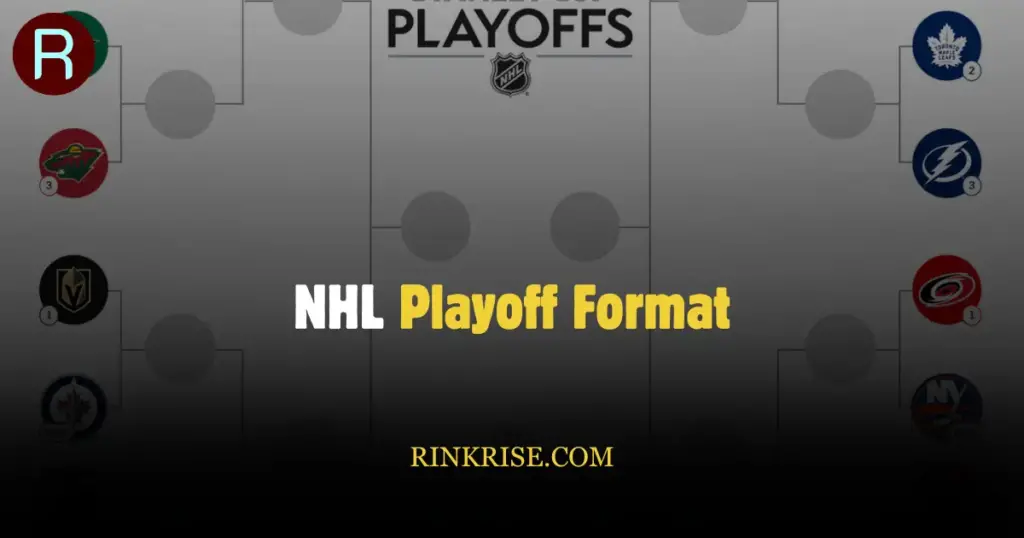Overview about NHL Season
The NHL season consists of 82 games per team, starting in October and ending in April. Playoff teams are chosen based on regular season performance. Tied regular season games go to overtime and shootout. Outdoor games, like the Winter Classic, add excitement without changing the length of the season.

What is the NHL season?
The NHL season refers to the annual schedule of games played by teams in the National Hockey League. It’s the organized timeline during which teams compete for various titles and trophies, notably the Stanley Cup.
Purpose of the NHL Season
The NHL season serves several purposes within the league. Firstly, it provides a structured framework for teams to compete against each other, showcasing their skills and strategies. Secondly, it engages fans, generating excitement and support for their favorite teams. Additionally, the season is a revenue generator for the league and its franchises through ticket sales, merchandise, and broadcasting rights.
Read more: The highest-scoring game in NHL history.
Importance of Regular Season and Playoffs
The regular season and playoffs are crucial in determining the Stanley Cup champion. During the regular season, teams compete in multiple games to earn points and secure playoff berths. The playoffs then feature the top teams battling through elimination rounds until the final two teams compete for the Stanley Cup.
This format ensures that the eventual champion has demonstrated consistent performance for the season and excelled under pressure during the playoffs.

When does the NHL regular season start?
The NHL regular season typically spans from early October to mid-April, consisting of 82 games for each team. Teams face opponents both within their division and conference, as well as teams from the opposing conference.
Breakdown of the Schedule
Teams play a balanced schedule, meaning they face each opponent at least twice—once at home and once away. The schedule is structured to ensure fairness and competitiveness, with factors like travel distance and rest days considered.
Explanation of Team Grouping
Teams are grouped into divisions based on geographical proximity to facilitate regional rivalries and minimize travel. These divisions are further organized into two conferences: the Eastern Conference and the Western Conference.
This grouping allows for a streamlined playoff qualification process, as teams primarily compete against others within their division and conference to secure postseason berths.
How many Games in the NHL season?
In a regular NHL season, each team typically plays a total of 82 games. This consistent number of games provides an equal opportunity for teams to compete and accumulate points throughout the season.
Factors Influencing Season Length
Several factors can influence the length of an NHL season. One significant factor is the scheduling constraints imposed by arenas, television networks, and other stakeholders. Additionally, considerations such as player fatigue, travel logistics, and international events like the Winter Olympics may impact the timing and duration of the season.
Moreover, unforeseen circumstances such as labor disputes or global pandemics, as experienced in recent years, can also affect the length of the season.

NHL Milestones
Throughout the NHL season, several key milestones mark significant events in the league’s calendar, including the All-Star Game and outdoor games.
All-Star Game
The NHL All-Star Game typically takes place in late January or early February and features the league’s top players competing in a showcase event. It provides an opportunity for fans to see their favorite players from different teams come together on one ice and display their skills in a friendly but competitive environment.
Outdoor Games
Outdoor games, such as the Winter Classic and Stadium Series, are unique events where NHL games are played in outdoor stadiums. These games often draw large crowds and capture the attention of both dedicated fans and casual observers. They offer a nostalgic throwback to the sport’s outdoor origins while also showcasing the NHL’s ability to innovate and attract new audiences.
Significance for Players and Fans
These milestones hold significant importance for both players and fans. For players, the All-Star Game represents recognition of their talent and dedication to the sport, as well as a chance to compete alongside and against their peers. Additionally, outdoor games provide a memorable experience of playing in unconventional settings and facing new challenges.
For fans, these events offer opportunities to engage with the sport beyond regular season games. They create memorable experiences and strengthen the bond between fans and their favorite teams and players. Moreover, they contribute to the overall excitement and spectacle of the NHL season, enhancing the enjoyment of both attending live games and watching broadcasts from afar.

NHL Playoff Format
The NHL playoffs feature a structured format that determines the Stanley Cup champion. Here’s how it works:
Seeding and Series Length
Sixteen teams qualify for the playoffs: the top three teams from each of the four divisions, plus two wild card teams from each conference. Teams are seeded based on their regular season performance, with the division winners ranked highest and wild card teams filling out the lower seeds.
The playoffs consist of four rounds, with each round being a best-of-seven series. This means that the first team to win four games advances to the next round. The higher-seeded team has home-ice advantage for the majority of the series, playing more games at their home arena.
| Round | Number of Matchups | Series Length |
|---|---|---|
| First Round | 8 matchups | Best-of-seven |
| Second Round | 4 matchups per conference | Best-of-seven |
| Conference Finals | 2 matchups per conference | Best-of-seven |
| Stanley Cup Finals | 1 matchup per conference | Best-of-seven |
Intensity and Excitement
Playoff hockey is renowned for its intensity and excitement. The stakes are high, as every game could potentially be the last for a team. Players elevate their performance, giving their all in pursuit of the ultimate prize—the Stanley Cup. The atmosphere in arenas becomes electrifying, with fans passionately supporting their teams and creating an unforgettable environment.
The playoff format also leads to thrilling moments, dramatic comebacks, and unexpected upsets. The tight series and elimination games add to the tension, making each goal and save crucial. For both players and fans, the adrenaline-fueled excitement of playoff hockey is unmatched, creating lasting memories and defining moments in NHL history.
Road to Stanley Cup
- Regular Season: Teams compete in 82 games to secure playoff berths.
- Playoffs: Top 16 teams advance to four rounds of best-of-seven series.
Memorable Moments from the Stanley Cup Finals
Here are some memorable moments from past Stanley Cup Finals:
- 1994: Mark Messier, the captain of the New York Rangers, made a bold guarantee that his team would win Game 6 against the New Jersey Devils. He then backed up his words with an incredible hat-trick performance.
- 2010: Patrick Kane of the Chicago Blackhawks scored a dramatic overtime goal in Game 6 to clinch the Stanley Cup against the Philadelphia Flyers.
- 1970: Bobby Orr, one of the greatest hockey players of all time, scored a famous goal while flying through the air in overtime of Game 4, securing the Stanley Cup for the Boston Bruins.
- 1980: The “Miracle on Ice” happened during the Winter Olympics, where the underdog United States hockey team defeated the heavily favored Soviet Union, capturing the hearts of the nation.
- 1996: The Colorado Avalanche, in their first season after relocating from Quebec, won their first-ever Stanley Cup, marking a historic moment for the franchise and its fans.
Read more: NHL Team With 24 Stanley Cups (Montreal Canadiens)
FAQs About the NHL Season
- How many games do NHL teams play in a season?
NHL teams play 82 games in a season. - When does the NHL season start and end?
The NHL season usually starts in early October and ends in mid-April. - How are teams selected for the NHL playoffs?
Teams qualify for the NHL playoffs based on their regular season performance. The top three teams from each division and two wild card teams from each conference advance to the playoffs. - What happens if a game in the NHL regular season ends in a tie?
If a game in the NHL regular season ends in a tie, it goes into overtime, and if still tied, it proceeds to a shootout to determine the winner. - How do outdoor games impact the NHL season schedule?
Outdoor games, like the Winter Classic and Stadium Series, are special events that are added to the regular season schedule. They provide unique experiences for both players and fans but do not impact the overall length of the season.
You may also like…



